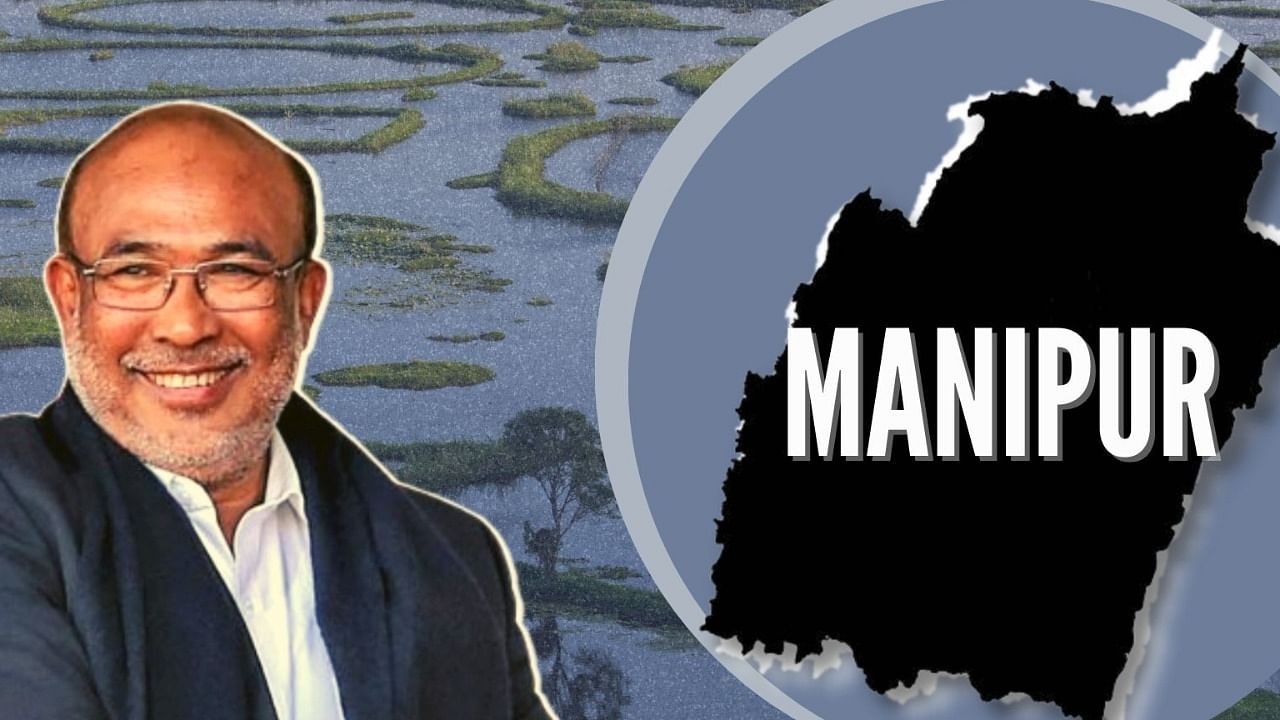
Riding on its promise of peace and development, BJP in Manipur for the first time hit its target of absolute majority by winning 32 out of 60 Assembly seats on Thursday and is all set to form the government for the second term.
The party this time set its target to win 40 seats to avoid a coalition government owing to the "tough time" it had with coalition partners, National People's Party (NPP) and Naga People's Front since 2017 when it wrested power from Congress.
The Opposition Congress, which mainly banked on the demand for repeal of Armed Forces (Special Powers) Act (AFSPA) saw its poorest show in Manipur elections as the party's tally was reduced to just five, from 28 in 2017. Congress had emerged as the single largest party in 2017 and was in power for three-straight term before that. Former CM and veteran Congress leader, Okram Ibobi Singh and his son Surajkumar Okram were among the Congress winners.
Interestingly, three NDA allies, NPP, NPF and Nitish Kumar's Janta Dal (United), which contested elections seperately with AFSPA's repeal as their main poll plank won more seats than Congress. NPP increased its tally from four in 2017 to seven this time, while NPF bagged five seats, particularly in the Naga-dominated hill constituencies. NPF had won four seats in 2017. BJP is likely to retain NPF as a partner in the new government.
JD (U), which contested elections in Manipur after a long time and gave tickets to candidates rejected by both BJP and Congress, won in six seats, most of which were won by Congress in the past. NPP and JD (U) contested in 38 seats each and also made AFSPA their main poll plank.
N Biren Singh, 61, retained his Heingang seat, where he has not lost an election since he took to politics in 2002. Singh switched from Congress to BJP in 2016 mainly due to his differences with Ibobi Singh and became the CM next year. Biren, although has not been projected as the next CM, is likely to don the mantle for the second term. Singh called it a historic victory.
BJP strongly highlighted its achievements that they ended the problem of frequent blockades through talks since it came to power in 2017, fulfilled the long demand for Inner Line Permit (ILP) and took up major infrastructure development projects to improve connectivity and create jobs. During campaigning, the party leaders sought another term to end militancy and drug menace, two big problems.
Congress insiders blamed the "neglect" by high command, dissidence and exodus of at least 16 MLAs to BJP since 2017 as the main reasons for the debacle.
Political commentator, Prasenjit Biswas said division of votes among Congress, NPP and JD (U) helped BJP sway ahead. "AFSPA, no doubt, is a big issue in the state that remains alive, inspite of elections," Biswas, an associate professor with North East Hills University in Shillong told DH.
Kuki People's Alliance, new party formed by two former bureaucrats, a doctor and a lawyer belonging to Kuki community in the hills constituencies, won the two seats it contested, Saikul and Singhat. The party aimed political representation of the tribal community.
Check out DH's latest videos: